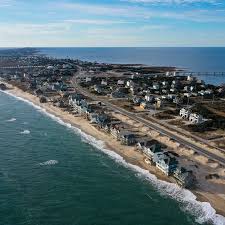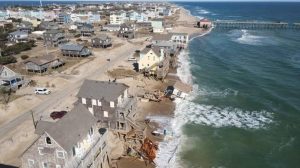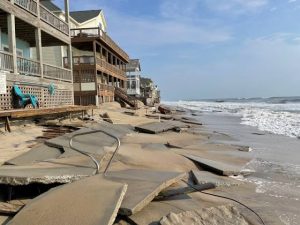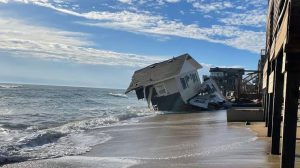
The Outer Banks (OBX) region of North Carolina is confronting a significant housing crisis, exacerbated by soaring property values, limited rental availability, and a growing demand for workforce housing.
Stakeholders across Dare County—including local governments, businesses, and community organizations—are actively collaborating to address these challenges through strategic planning and policy reforms.

Strategic Goal #4: Advocating for Housing Diversity
The Outer Banks Visitors Bureau (OBVB) has identified housing diversity as a critical issue in its Long-Range Tourism Management Plan. Strategic Goal #4 emphasizes the need to.
Increase homeownership options: Collaborate with Dare County and other partners to advocate for a broader range of homeownership opportunities, including incentives for developing alternative and sustainable housing.

Balance rental and ownership opportunities: Advocate for a balance between short-term rentals and long-term homeownership to ensure housing availability for residents.
Enhance workforce accessibility: Partner with local groups to explore public/private housing development opportunities and advocate for the development of public transportation and other mobility options to improve workforce accessibility.
These initiatives aim to increase housing diversity, retain, and attract full-time residents, and establish a common understanding of existing needs and possible solutions.

Business Sector Response: Investing in Employee Housing
Local businesses are taking proactive measures to address the housing shortage by investing in employee housing.
For instance, Twiddy & Company has collaborated with North Carolina State University to launch the Lighthouse Fund for Sustainable Tourism. This initiative aims to support long-term planning and sustainable growth in the region.
Business owners have reported making substantial capital investments in housing to attract and retain skilled workers, recognizing that without affordable housing, it is challenging to maintain a competent workforce.
Legislative and Legal Developments
The North Carolina state legislature recently allocated $35 million to Dare County for the construction of a 400-unit affordable housing development.

However, this initiative has faced opposition from local towns, which filed a lawsuit arguing that a provision in the state budget exempting the project from local zoning regulations is unconstitutional.
The towns contend that this exemption undermines local control over land use and planning decisions. The lawsuit is currently pending in Wake County Superior Court.
Public Perception and Community Engagement
A survey conducted by East Carolina University in partnership with the Dare Community Housing Task Force indicates that a significant portion of the Outer Banks community views affordable housing as a major issue.
The survey found that 59% of respondents consider affordable housing a “major problem” in their community. This sentiment underscores the urgency for collaborative efforts to develop and implement effective housing solutions.
Conclusion
The Outer Banks is at a critical juncture in addressing its housing challenges. Through collaborative efforts among local governments, businesses, and community organizations, the region is working towards sustainable solutions that balance growth with the preservation of community character.

Continued engagement and innovative approaches will be essential in ensuring that the Outer Banks remains a vibrant and accessible community for all residents.





